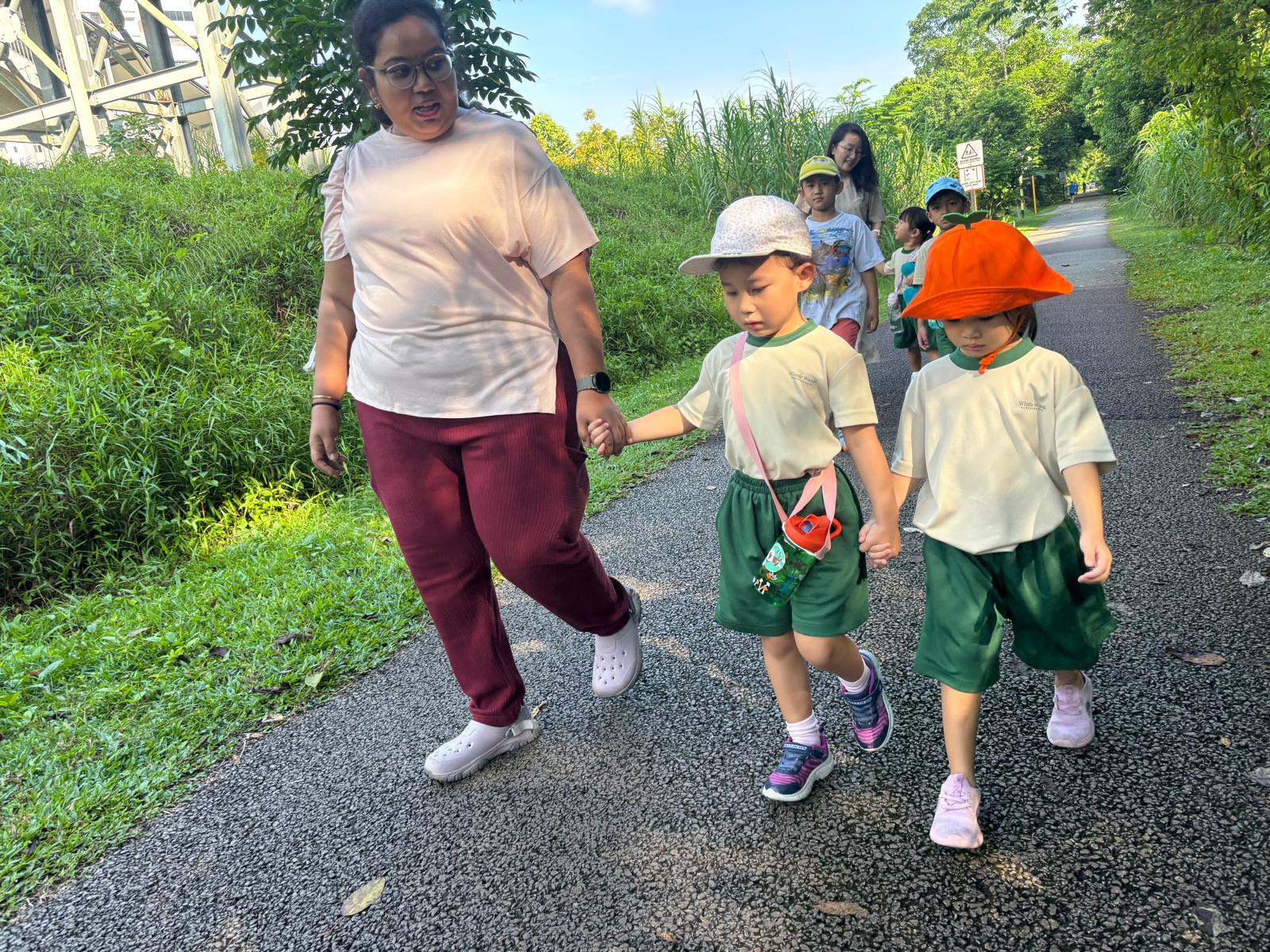We have all heard this before – spending time in nature and green spaces is good for us, both adults and children alike. In recent years, most conversations have focused on how outdoor time supports mental health and eye health. But when I came across an article in The Guardian titled “How a radical experiment to bring a forest into a preschool transformed children’s health”, I was curious to learn how a forest could benefit children’s health in a preschool setting.
In Finland, researchers carried out an experiment at a children’s daycare centre by “rewilding” the outdoor space – bringing in forest soil, plants, and other natural biodiversity – to study its impact on children’s health. Results showed that children who played in these rich, natural environments had fewer disease-causing bacteria on their skin, better immune regulation, and more diverse gut microbiota compared with children who played in conventional playgrounds. In other words, children who played in nature were healthier in measurable ways. The study also revealed that microbes from soil and plants can be transferred into the body through touch — and even through breathing. As The Guardian notes, “even breathing counts: the air has its own microbiome, which is associated with tree and plant species in the surrounding area. Soil – home to 90% of the world’s fungi – also feeds the microbiome in the air.”
At Whistle Woods Schoolhouse, we don’t need to bring a forest into our school as we are incredibly fortunate to be located right at the edge of one! The Bukit Timah Forest (Nature) Reserve, established in 1883, retains one of Singapore’s few remaining areas of primary rainforest, including rare hill dipterocarp forests not found anywhere else on the island. As part of our curriculum, our children explore and play in the forest twice a week – not in a curated sandpit or manicured lawn, but in a truly rich and natural environment that supports both physical and mental wellbeing. Even the air around our school is filled with life and freshness, a daily gift from the surrounding forest.
The article also reminds us, “increasingly, scientists are learning that our health is intimately linked to our surroundings, and to the ecological health of the world around us. The first 1,000 days of human life – when the brain and body are most rapidly developing – are considered particularly crucial.” Hence, to all parents who wish to nurture their child’s healthy growth early – perhaps the simplest and most powerful step is this: let them play freely in nature. At Whistle Woods Schoolhouse, we make this a living part of childhood – where learning, play, and wellbeing grow together under the trees.
Warmly,
Eiling


